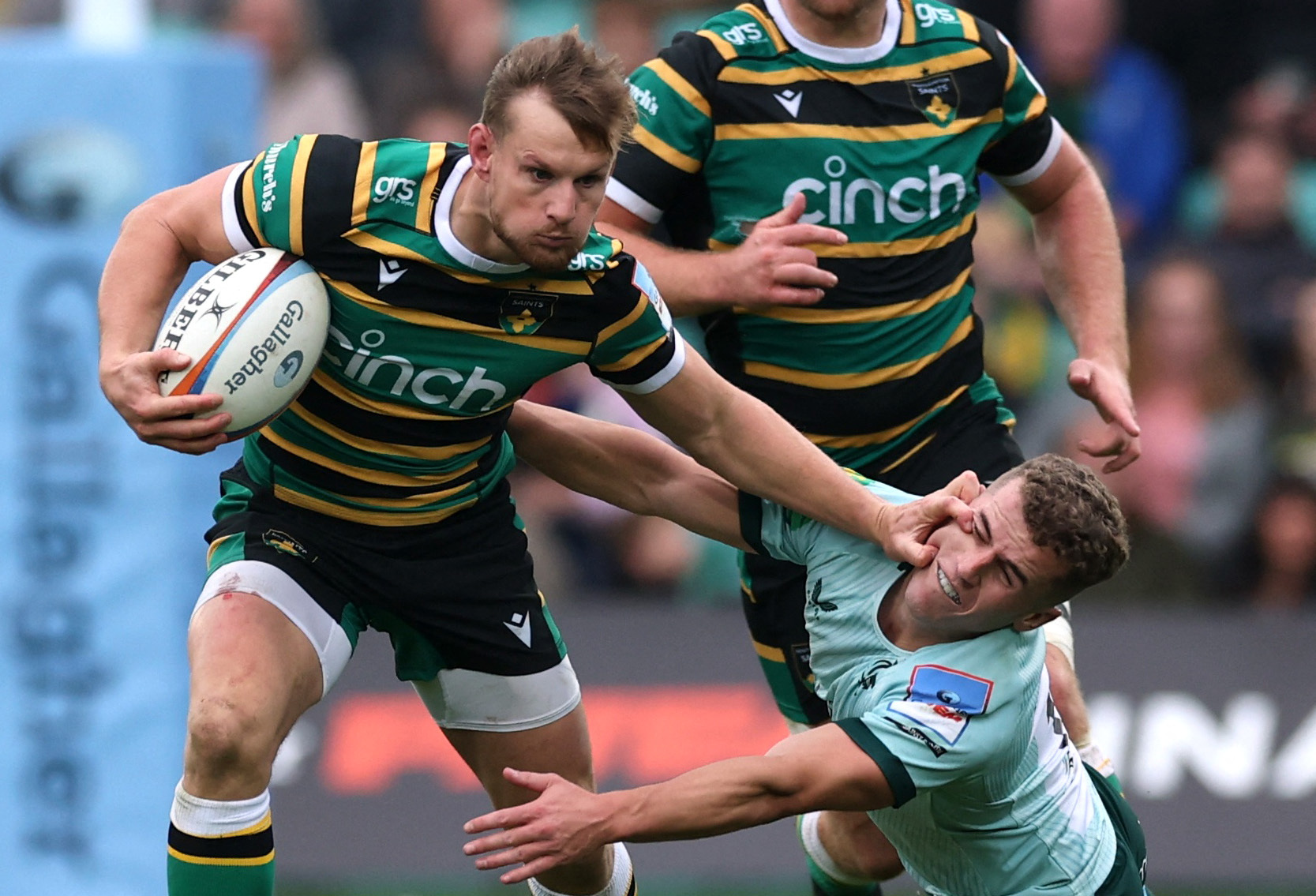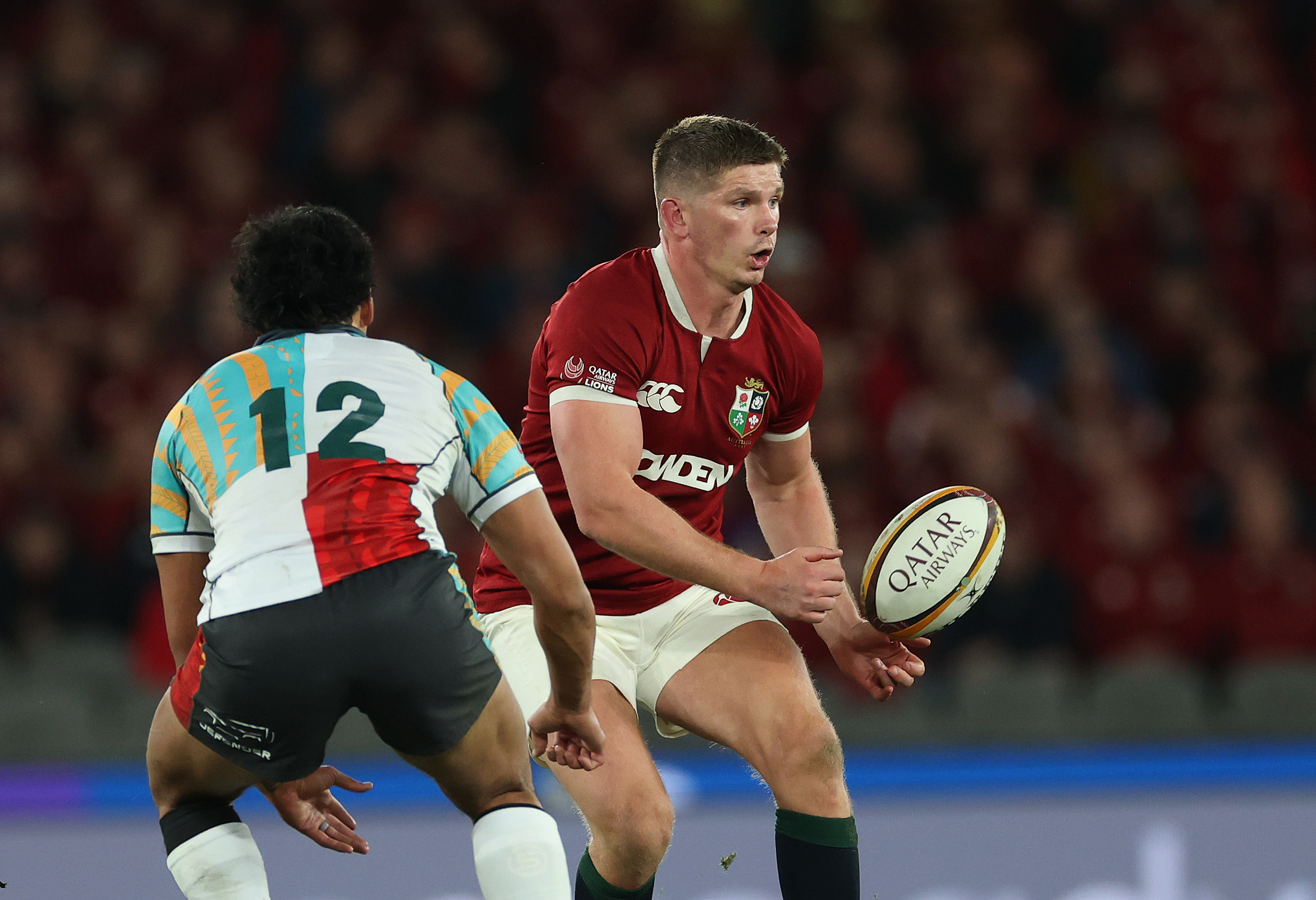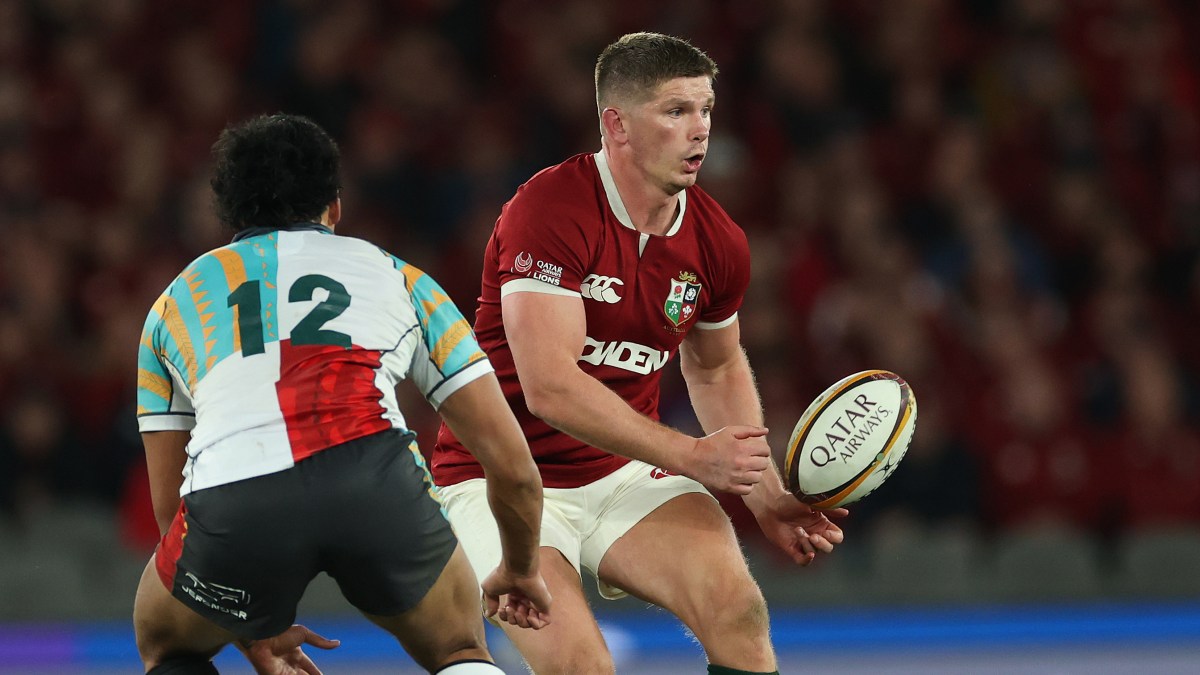Harlequins still miss André Esterhuizen, their Springbok centre who possessed the capacity to carry his team and their genie, Marcus Smith, on to the front foot. At its most basic, rugby is something of a one-way business. Front-foot momentum — in attack and defence — isn’t everything, but its not far short.
Smith and his team-mates aren’t the same without their big mate. Shifting laterally to pull an opposing defence out of shape is fine and dandy, but ambitious attacks require someone to straighten the line. Sides that go from one side of the pitch to the other will stretch a defence, but they won’t break it. Even with a kicking game, runners have to fix the midfield to create the space out wide. Dan Carter needed his Ma’a Nonu, Smith, his big South African.
Exeter, who welcome Harlequins to Sandy Park on Sunday, have the Australia centre Len Ikitau making his English club rugby debut. The 27-year-old might not have quite the magical footwork of Nonu, or the heft of Esterhuizen, but the 6ft, 15st Australian has an impact that dwarfs his size.

Ikitau shifted to inside centre against New Zealand to make room for Sua’ali’i
COLIN MURTY/AFP/GETTY IMAGES
He’s all grit, no glamour. But a great player, a man capable of connecting modern-day Exeter with their illustrious predecessors. He’ll give them that valued front foot without anyone noticing half the time. Take the sixth and final round of the Rugby Championship. The Wallabies were playing the All Blacks in Perth. Their pack was patiently picking and driving towards the New Zealand tryline, inch by inch. Ikitau joined the collective a few yards out and smuggled the ball into his jersey, the ball protected like it was safe in a pouch.
The centre disengaged before the attack reached the line. Driving with his low centre of gravity, he caught out New Zealand and scored the try. Anyone who watches Super Rugby wouldn’t have been surprised. He is a master from close quarters, the ninth forward. Exeter, with their history of pick-and-drive rugby — largely redundant for the past few seasons — have someone to regenerate their close-quarter play.
Ikitau was predominantly a No13 when Rob Baxter signed him, but his performance against England almost a year ago — playing No12 to allow the rookie, Joseph Sua’ali’i, to play in his designated position of outside centre — was as good as any performance he had delivered for Australia.
He isn’t as easy on the eye as, say, Northampton Saints’ Rory Hutchinson. The Scotland international is a dream for those in love with rugby for purely esoteric reasons. After beating Newcastle Red Bulls on Friday night, Northampton went top of the table. Saints are not at their best yet. Indeed, it is doubtful whether they would have picked up any of their three victories without the versatile midfielder. He glides through gaps forged by his own subtle running lines.

Hutchinson has moved up a level this season
PAUL CHILDS/REUTERS
How different to Ikitau, who is a proven Test-match scrapper and a magnificent reader in defence. Hutchinson has flickered and faded during his time at Saints. Right now he is playing better than ever. He credits the coaching of Sam Vesty and Lee Radford for the renewed consistency. The latter is now with Scotland as defence coach. Scotland have strength in depth at centre but Hutchinson has a magic that has merged with muscle. He must be pressing for a recall.
In the win at Gloucester he created two tries with his spatial awareness and running lines, but it was the turnovers and the Prem tackle of the season (it will win the award if there is such a thing) on Ben Loader, as the Gloucester wing was thumped into touch with a tackle, that was different. He is playing with the extra edge needed to turn talent into caps.
Please enable cookies and other technologies to view this content. You can update your cookies preferences any time using privacy manager.
Enable cookiesAllow cookies once
Ikitau booms around a pitch, committed from first to last. Hutchinson, 29, is just so elegant you believe he can’t be trying. At his best, he makes the sport look simple. When an attacking line plays the nigh-universal initial ball to first receiver (generally a centre) with the fly half looping behind, too often the attack is forced sideways because the distributor (generally the centre) doesn’t attack the gainline to fix the defence.
It often ends with attacks originating from too deep, running diagonally at best or even away from defenders as opposed to flooding the space and punching holes nearer the first passer. To be too static as a distributor is to succumb to playing on defenders’ terms. So far this campaign, Hutchinson has been searingly good at creating space as he hurtles onto the pass and over the gainline. In comparison, other centres sit too deep for all the pretty passing to have a point other than coaching by numbers.
If Owen Farrell wants to — and he may not — get back into England contention, the undoubted sheer quality of his passing from inside centre isn’t enough. He isn’t challenging the opposing midfield as Hutchinson is, from either No12 or No13, which Ikitau always does. Fergus Burke, the Saracens fly half, is quick but can find his running lines too lateral to get a sighting of the gainline. Marcus Smith taking a ball on the front foot from Farrell — as happened when the two men combined in their earliest days together with England — is a frightening proposition. Smith chugging backwards to receive the pass makes him a rag doll target for the opposing midfield.

Farrell has a deep understanding of the game but he will need to challenge defences more with the ball in hand
TIMES PHOTOGRAPHER MARC ASPLAND
Farrell could do with producing a threat of his own. He knows the game inside out and will surely seek to carry in order to fix a defence, mixing it with passes to keep them guessing. If the first receiver is too static, better to rethink the looping fly half and be like Finn Russell, prepared to take the fight to the defence with his own carrying/passing game.
Rugby union is a one-way business. Take the game to the defence like Hutchinson and there’s opportunity. Sit back and let the tacklers take the initiative and the business belongs to the defence. Maybe it’s not quite so simple… then again, maybe it is.

